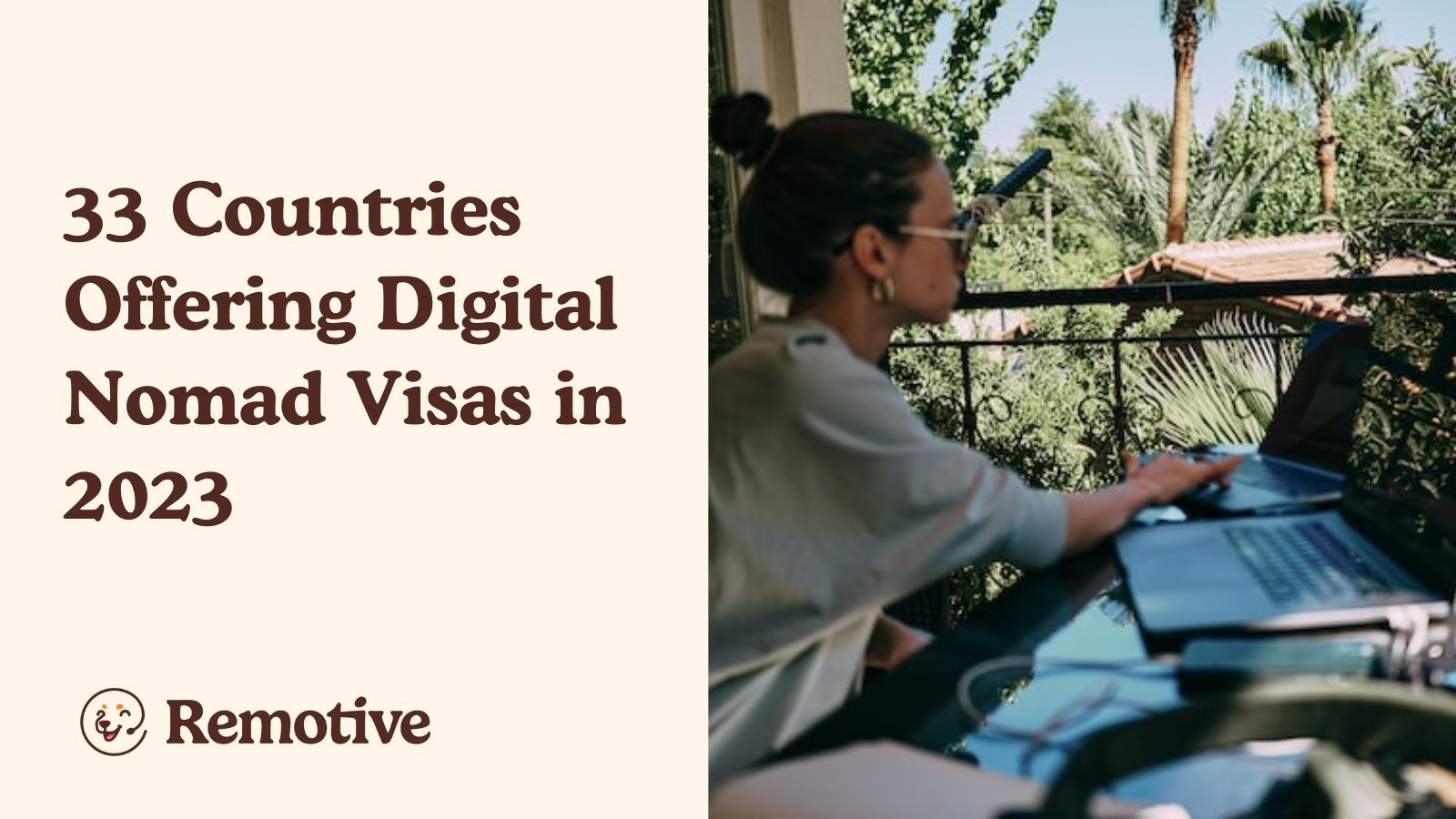Have you ever longed to live in the Tuscan countryside for a year, see the Northern lights and experience the polar night, or work with a Caribbean sea view? Well, now it’s easier than ever with the new digital nomad visas.
A digital nomad visa allows remote workers to live and work in a foreign country for an extended period. They are temporary residence permits that typically last longer than a regular tourist visa.
So, to get you started on your next adventure, here’s everything you need to know about digital nomad visas if you want to work remotely in almost every region of the world. We do not mention health insurance in the requirements but assume that it will be required for any of these digital nomad visas and, of course, a valid passport.
Africa
Cabo Verde
➡ Who is eligible? Self-employed folks from Europe, North America, the Community of Portuguese Speaking Countries (CPLP), and the Economic Community of West African States (CEDEAO).
➡ What are the requirements? A minimum average bank balance of €1.500 on the last 6 months, plus some more paperwork.
➡ How long can you stay? 6 months (renewable for 6 additional months).
Learn more about Cabo Verde’s Remote Working Program and apply for the visa here.
Namibia

➡ Who is eligible? Anyone!
➡ What are the requirements? Proof of income/funds (payslip/employment contract) to sustain yourself, $2,000 monthly income, plus some more paperwork.
➡ How long can you stay? 6 months.
More details on Namibia’s Digital Nomad Visa website.
Seychelles

➡ Who is eligible? Anyone!
➡ What are the requirements? Onward or return ticket, proof of employment provided by your employer or proof that you are a business owner, plus some more paperwork.
➡ How long can you stay? Up to one year.
Find more details at The Seychelles Workcation Retreat Program website.
Asia
Dubai

➡ Who is eligible? Anyone!
➡ What are the requirements? Proof of employment from your current employer (and a contract for at least one year) or proof of ownership of a company and a minimum of $5,000 monthly salary, plus some more paperwork.
➡ How long can you stay? One year.
Find more information about Dubai and the virtual working program here.
Malaysia

➡ Who is eligible? Digital freelancers, independent contractors, or remote workers with a contract period of 3 months or more.
➡ What are the requirements? At $2,000 monthly income, some paperwork and fees.
➡ How long can you stay? 12 months, and it can be renewed for another 12 months.
Learn more about the DE Rantau Nomad Pass here.
Thailand

➡ Who is eligible? Anyone working remotely for an employer outside of Thailand.
➡ What are the requirements? Proof of income of at least $80,00o per year.
➡ How long can you stay? 10 years (!)
Learn more about the Long-Term Residents visa here and check what documents you will need here.
Central America and the Caribbean
Anguilla

➡ Who is eligible? Non–nationals employed outside of Anguilla.
➡ What are the requirements? Demonstrate self-employment, employment with a legitimate company or your own company registered and operating outside of Anguilla, in the case of a remote worker, and some other paperwork.
➡ How long can you stay? One year (renewable).
More information about Anguilla and the application process here and here.
Antigua & Barbuda

➡ Who is eligible? Non–nationals employed outside of Antigua and Barbuda.
➡ What are the requirements? Any of the following documents: job letter, salary payments, business license, bank statement, and/or work permit, plus some fees and paperwork.
➡ How long can you stay? Two years.
Learn more and apply here.
Barbados

➡ Who is eligible? Anyone!
➡ What are the requirements? An annual income of at least USD$50,000 over the 12 months you intend to have the travel stamp.
➡ How long can you stay? 12 months.
Learn more at the very informative Barbados Welcome Stamp website.
Belize

➡ Who is eligible? Non-Belize nationals employed outside of Belize.
➡ What are the requirements? Proof of employment outside of Belize, a minimum annual income of $75,000 for individuals, plus some paperwork.
➡ How long can you stay? 6 months.
In this link, you can check your eligibility and learn more about the Work Where You Vacation scheme.
Bermuda

➡ Who is eligible? Non–nationals employed outside of Bermuda.
➡ What are the requirements? Demonstrate self-employment, employment with a legitimate company or your own company registered and operating outside of Bermuda, in the case of a remote worker, and some other paperwork.
➡ How long can you stay? One year.
More on Work From Bermuda’s website.
Costa Rica

➡ Who is eligible? Self-employed folks or entrepreneurs only.
➡ What are the requirements? $2,500 monthly or a deposit of $60,000 in a Costa Rican bank account and some paperwork.
➡ How long can you stay? Two years.
More information on requirements and how to apply can be found on Costa Rica’s Immigration Website.
Dominica
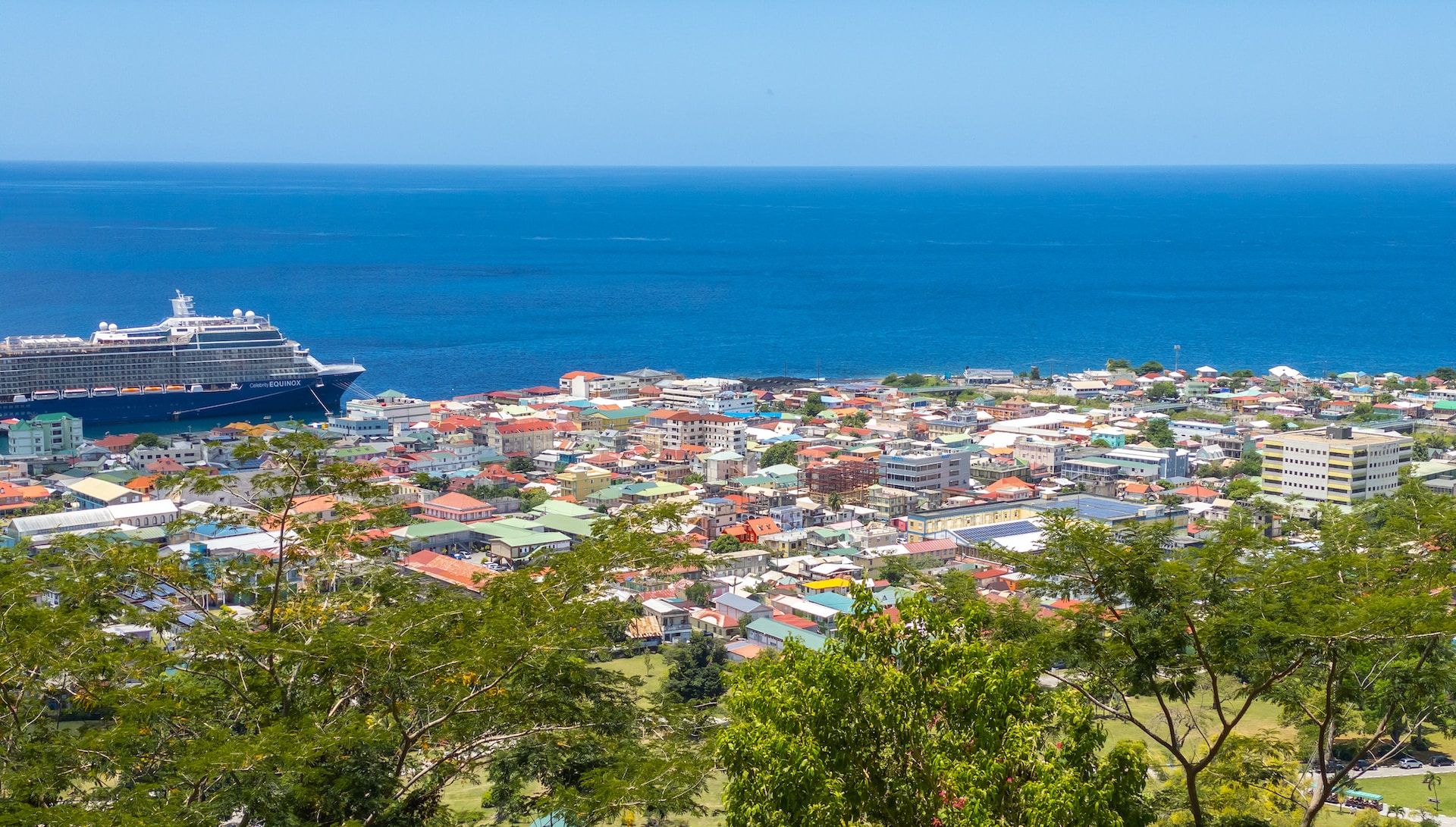
➡ Who is eligible? Non–nationals working remotely.
➡ What are the requirements? An income of US$50,000 or more over the next 12 months and/or have the means to support yourself plus fees and some paperwork.
➡ How long can you stay? 18 months.
Learn more about The Work in Nature (WIN) Extended Stay Visa here.
Montserrat
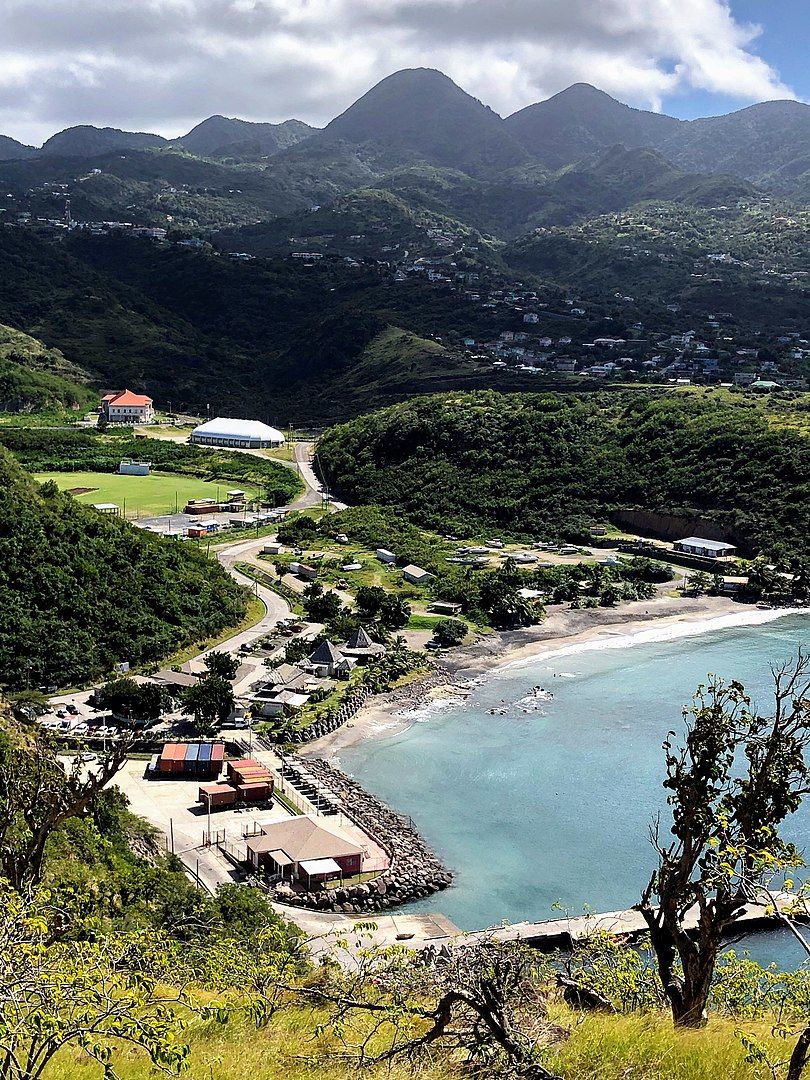
➡ Who is eligible? Non–nationals employed or self-employed outside of Montserrat.
➡ What are the requirements? Annual income of USD$70,000 plus some paperwork.
➡ How long can you stay? One year.
Check out this website for more information on Montserrat Remote Work Stamp scheme.
The Bahamas

➡ Who is eligible? Professionals who are working from home.
➡ What are the requirements? A job letter (from current employer) or proof of self-employment plus some paperwork and application fees.
➡ How long can you stay? One year (can be renewed up to three years). To learn more about the requirements and application process, visit the Bahamas Extended Access Travel Stay (BEATS) website.
North America
Mexico

➡ Who is eligible? Self-employed folks or entrepreneurs only.
➡ What are the requirements? $1,620 monthly and proof of a bank balance of at least $27,000.
➡ How long can you stay? Up to a year.
More information on the Temporary Resident Visa requirements and how to apply can be found here.
Europe
Croatia

➡ Who is eligible? Non-EU/EEA/Swiss citizens who are employed or perform work through communication technology for a company or their own company that is not registered in Croatia and do not perform work or provide services to employers in Croatia.
➡ What are the requirements? A minimum of €2.539,31 monthly or €30,000 in the bank if you intend to stay for 12 months, plus some paperwork.
➡ How long can you stay? Up to a year
Check out Croatia’s Ministry of Interior website for more details on how to apply. And our article about our first team retreat in Split 🙂
Cyprus

➡ Who is eligible? Non-EU/EEA countries nationals who can work location independently using telecommunications technology and work for an employer registered abroad or perform work through telecommunications technology for companies or clients located abroad.
➡ What are the requirements? €3,500 net income, monthly, plus paperwork.
➡ How long can you stay? Up to a year, with a possibility of renewal for two years.
Learn more about the application process at Cyprus’ Civil Registry and Migration Department website.
Czechia (Czech Republic)

➡ Who is eligible? Non-EU/Iceland/Lichtenstein/Norway/Switzerland citizens who intend to run a business or be self-employed.
➡ What are the requirements? €7000 (at least), a trade license for any of the trades included here, plus paperwork.
➡ How long can you stay? One year (it can be extended up to a year).
More information and the application process here.
Estonia
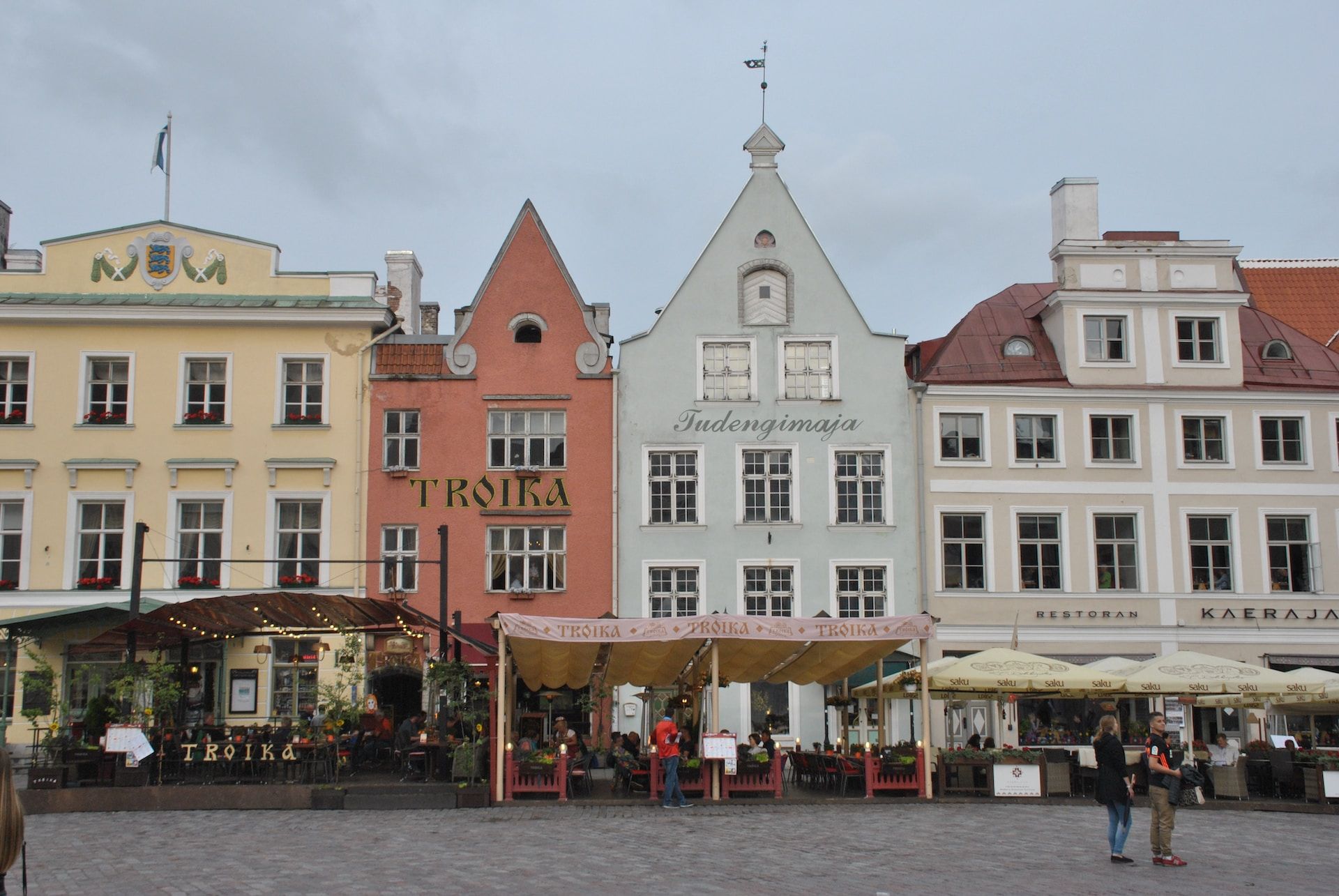
➡ Who is eligible? Location-independent workers using telecommunications technologies who do not have citizenship or permanent residency in Estonia or the EU.
➡ What are the requirements? €4,500 (gross of tax), plus some paperwork.
➡ How long can you stay? Up to a year
Learn more about Estonia’s digital nomad visa (and the differences and similarities with e-residency) here.
Georgia

➡ Who is eligible? No visa is required if you are a citizen of any of the countries included in this table.
➡ What are the requirements? $2,000 a month or $24k in the bank, plus some paperwork.
➡ How long can you stay? 1 year
See here for tax information (check out Georgia’s Individual Entrepreneur scheme).
Greece

➡ Who is eligible? Third-country nationals, self-employed or employed, who work remotely using Information and Communication Technologies (ICT) with employers or clients outside Greece.
➡ What are the requirements? €3,500 monthly, plus some paperwork.
➡ How long can you stay? Up to 12 months, and it can be renewed.
Law 4825/2021 (Government Gazette Α’ 157/4-9-2021) was issued in 2021. You can read it in Greek here. We could not find an official English translation; if you come across it, please email us, and we’ll edit this article.
Hungary

➡ Who is eligible? Non-EU/EEA citizens who work for companies or clients outside of Hungary.
➡ What are the requirements? €2,000 monthly, plus paperwork.
➡ How long can you stay? Up to a year and can be renewed for another 12 months.
If you can read Hungarian, here’s the text of the new legislation (White card bill).
Iceland

➡ Who is eligible? Non-EEA/EFTA citizens who are foreign company employees or self-employed workers.
➡ What are the requirements? Around $7,000 monthly, plus paperwork.
➡ How long can you stay? Up to 180 days.
Find more information and the application link here.
Italy

➡ Who is eligible? Non-EU citizens.
➡ What are the requirements? It changes with nationality, but proof of income (€ 4,962.36 minimum) and at least €8,500 in earnings in the previous year, plus paperwork.
➡ How long can you stay? Unclear from the website; more than 90 days for sure.
For a guide that will help you decide if you need to apply for a visa based on your nationality, country of residence, reasons for your visit, and length of stay, check out this very helpful questionario, with links to resources and application information.
Latvia
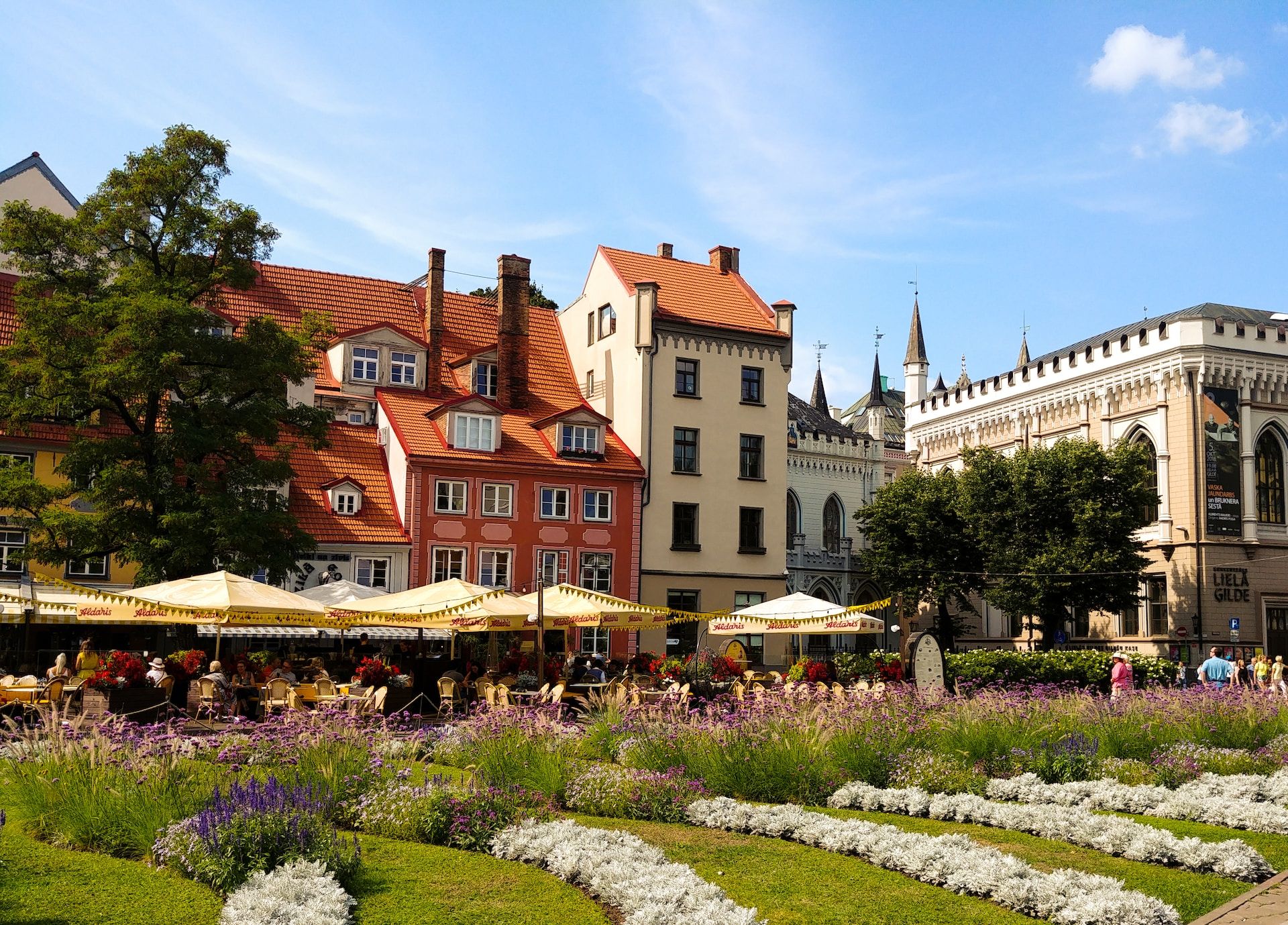
➡ Who is eligible? Third-country nationals who can work remotely while residing in Latvia and who are employed or self-employed and registered in an OCED member state.
➡ What are the requirements? €3200 monthly, plus paperwork and health insurance.
➡ How long can you stay? Up to one year, and can be renewed for another year.
Check out the Office of Citizenship and Migrations Affairs of Latvia’s website for more details.
Malta

➡ Who is eligible? Non-EU/EEA/Swiss individuals who can work remotely and independently of location, using telecommunications technologies.
➡ What are the requirements? €3200 monthly, plus paperwork and health insurance.
➡ How long can you stay? Up to one year, and can be renewed.
Check out this very helpful website for more details on life in Malta and the application process.
Portugal

➡ Who is eligible? Third-country nationals (non-EU/EEAA citizens)
➡ What are the requirements? €2,820 a month, plus some paperwork.
➡ How long can you stay? Up to a year (it can be renewed).
Check out the Ministry of Foreign Affairs website for more information about the types of visas, requirements, and the application process.
Romania

➡ Who is eligible? Non-EU digital nomads who are either self-employed and registered outside of Romania or work for companies outside of Romania.
➡ What are the requirements? €3,950 monthly (three times the average gross monthly salary in Romania), plus paperwork.
➡ How long can you stay? Up to one year.
All the details can be found on the Romanian Ministry of Foreign Affairs website.
Svalbard (Norway)

➡ Who is eligible? Anyone!
➡ What are the requirements? Svalbard is a visa-free zone; you might need a Schengen visa to enter via Norway/Schengen. You must have the means to support yourself in Svalbard.
➡ How long can you stay? Indefinitely, as long as you can support yourself.
Learn more about entry and residence in Svalbard here. And for inspiration and information about life in Longyearbyen from a local, check out Cecilia Blomdahl’s videos (not sponsored, I love her videos).
The Netherlands

➡ Who is eligible? Anyone (including self-employed EU citizens).
➡ What are the requirements? € 1,462.41 (gross monthly profit), a business plan, and some more paperwork.
➡ How long can you stay? Two years.
In this link, you can enter your nationality and find the exact requirements and application process relevant to you.
South America
Brazil

➡ Who is eligible? Anyone employed by an employer outside of Brazil or self-employed and providing services in countries other than Brazil.
➡ What are the requirements? $1,400 monthly or at least $17,000 in your bank account, plus paperwork.
➡ How long can you stay? Up to 12 months, and it can be renewed.
Learn more about the application process here.
Colombia

➡ Who is eligible? Freelancers or remote workers providing services for companies outside of Colombia, or business owners/entrepreneurs that want to start an IT/Tech business that benefits Colombia.
➡ What are the requirements? Proof of employment outside of Colombia or demonstrate that you are a business owner/entrepreneur, a monthly income of at least $900, plus some more paperwork.
➡ How long can you stay? Two years.
Learn more about the requirements and different visas at Colombia’s Ministry of Foreign Affairs website.
This list will be updated periodically. If you have any comments or feedback, please contact Vic.


